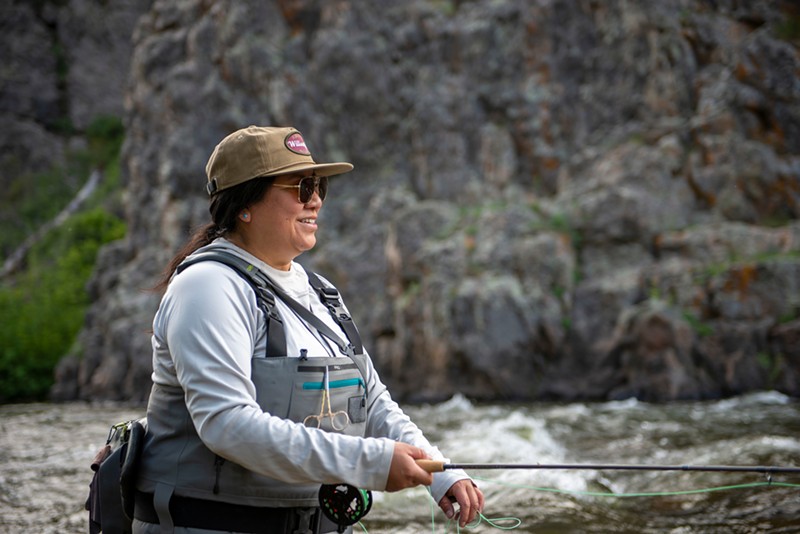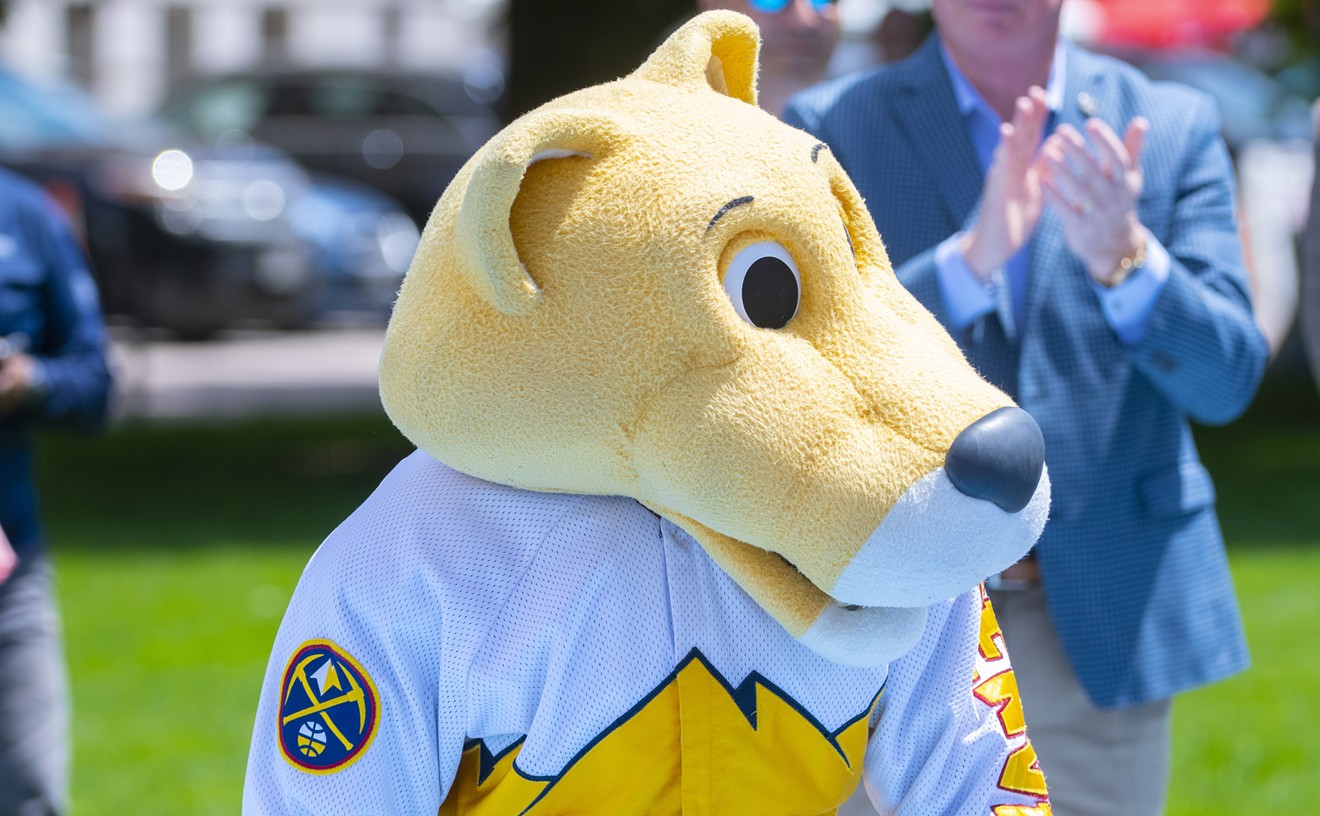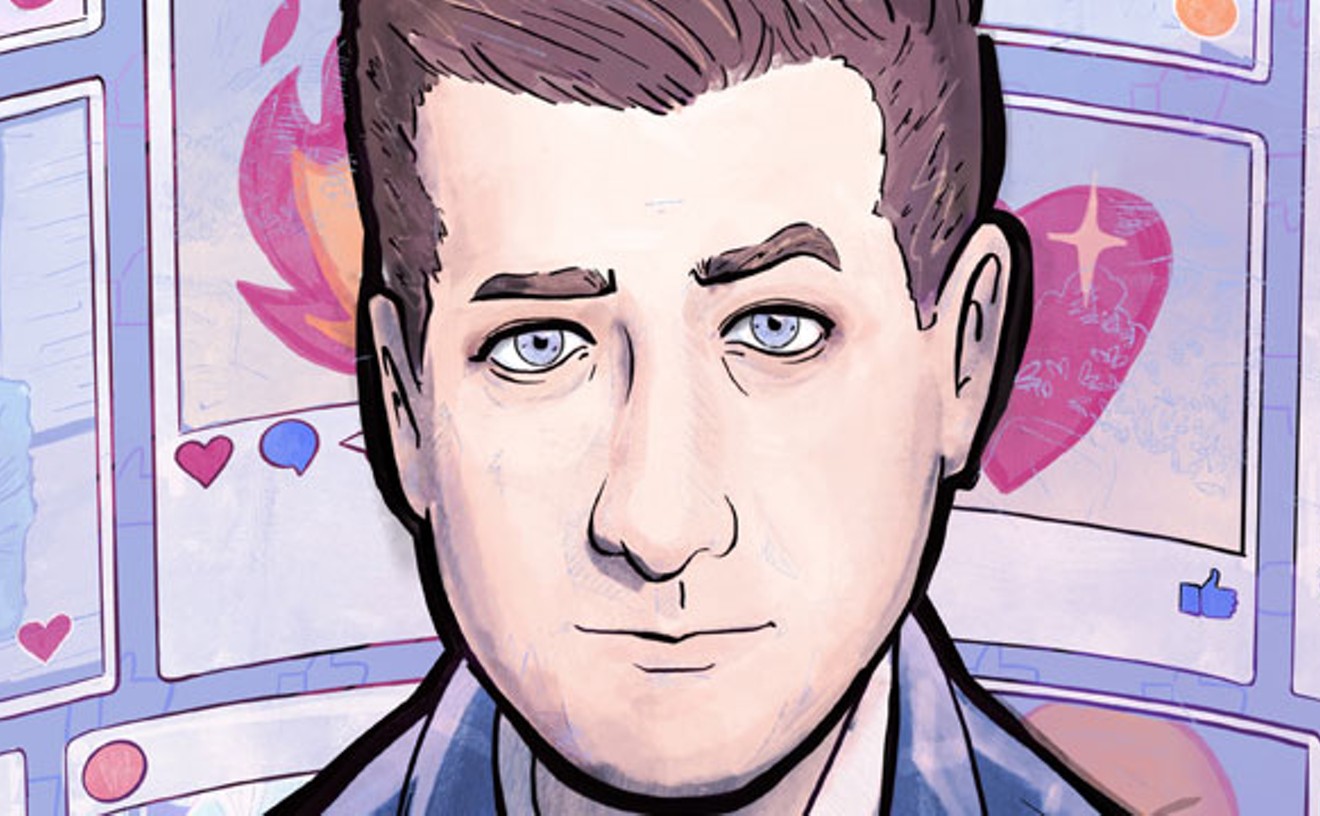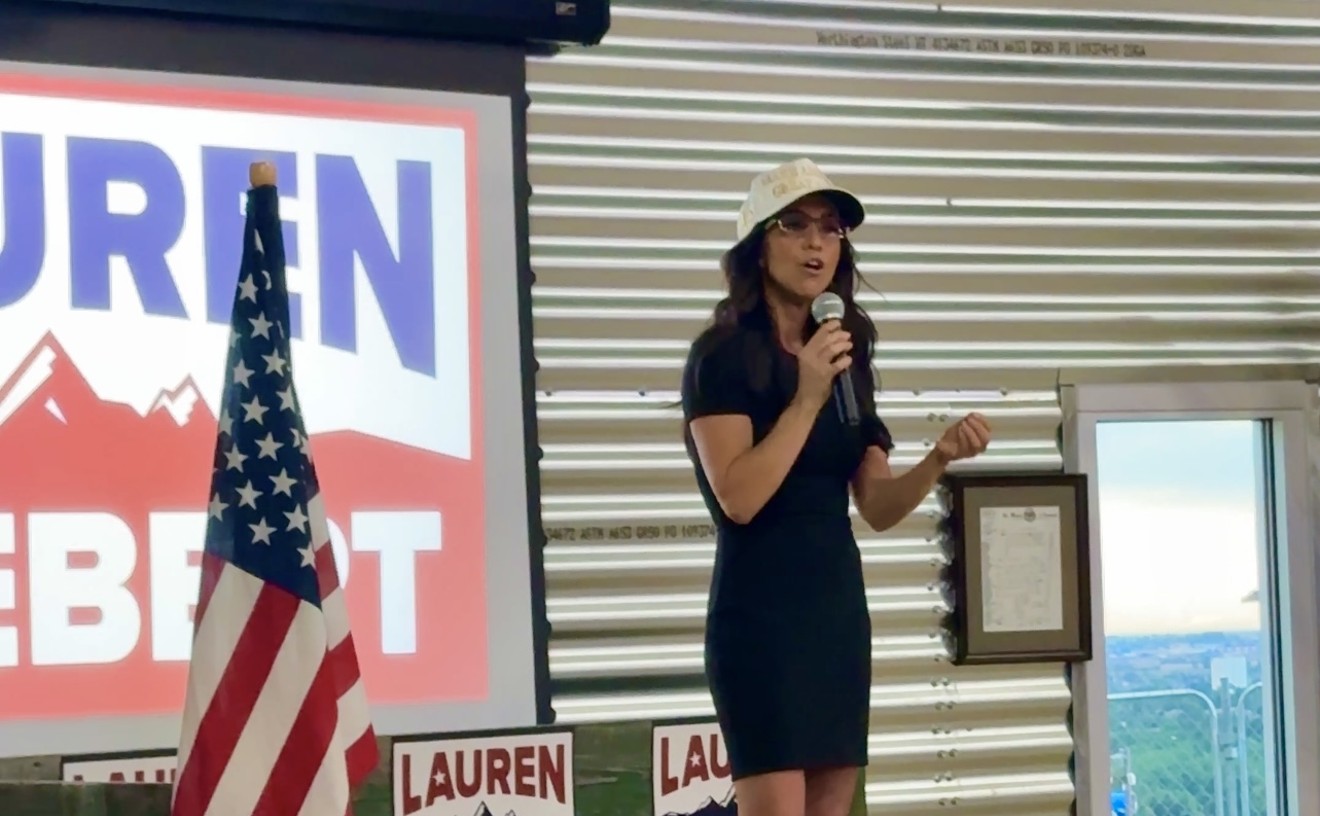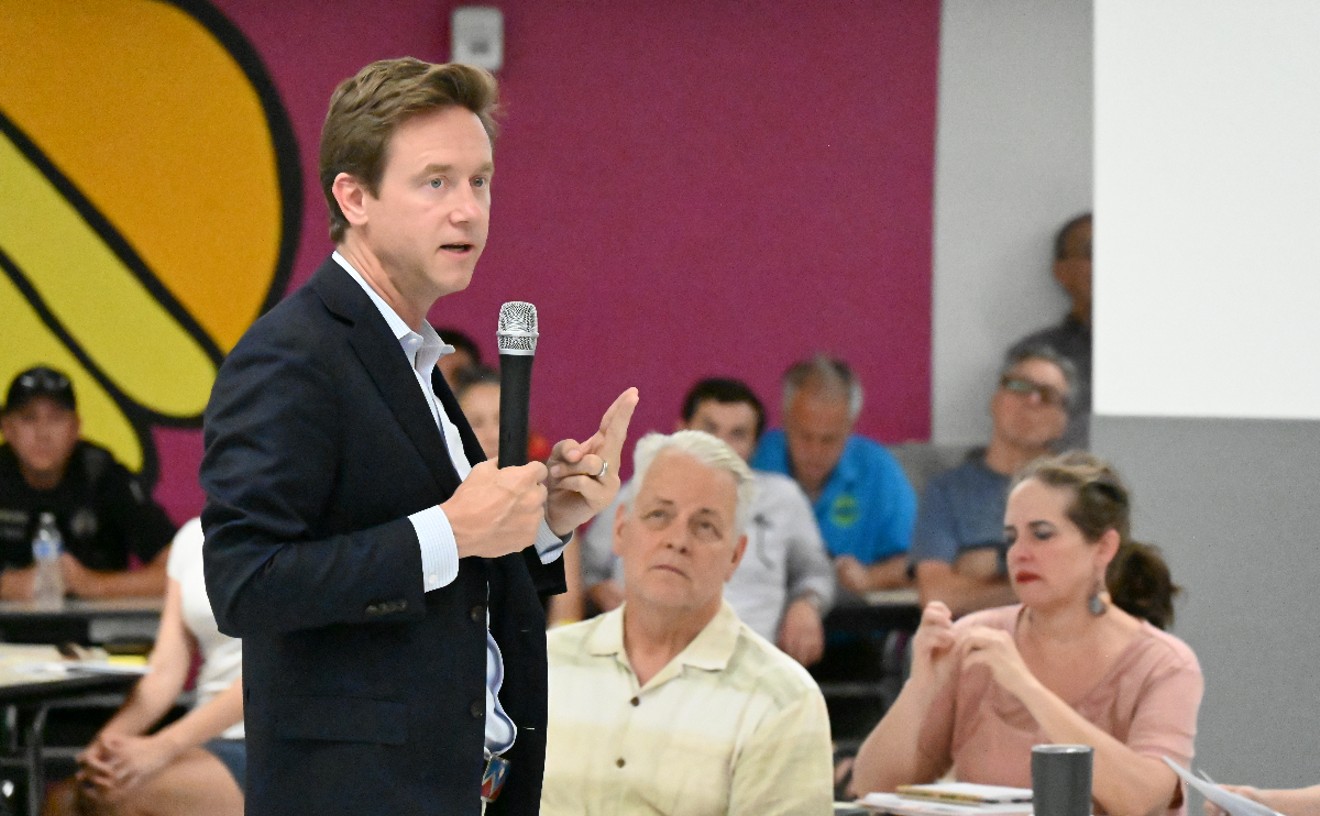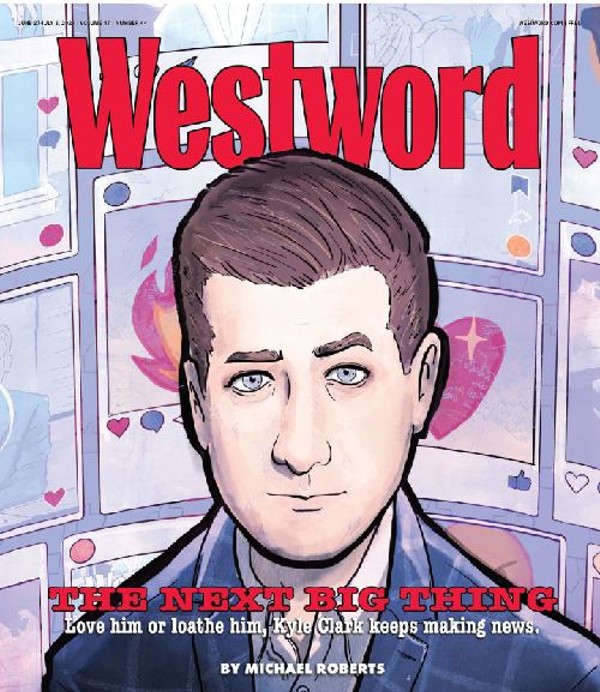“Most other people who come fly-fishing or who guide are so focused on the fish and wanting to catch these big trophy fish, and that's about it,” says Erica Nelson, one of only two Indigenous women fly-fishing guides in the state. “That's fine, but we like to teach that everything is in relationship with each other and be a little bit more holistic when it comes to education and protection of these areas.”
As Nelson guides people along Colorado's waters, she talks with them about how they can live in balance and harmony with nature, using the Navajo term hozho to describe “a philosophy of living in that balance.”
Nelson, who is Navajo, was born in New Mexico; before moving to Colorado, she lived on the north shore of Lake Tahoe. Nelson was a professional disc golf player and routinely played as a hobby. But there were no disc golf courses in Lander, Wyoming, where she took a job with the National Outdoor Leadership School, so in 2016 she borrowed some equipment, hopped on YouTube to get a few tutorials, and took up fly-fishing.
After that, she used Instagram and even Tinder to connect with others who knew more about fishing. By the time she moved to Crested Butte in 2019 for a job with Vail Resorts, Nelson was hooked. She relished the opportunity to fish in some of the headwaters of the Colorado River, including the Taylor River in Gunnison County.
During the pandemic, though, Nelson was laid off. Today she has her own company, REAL Consulting, hosts the Awkward Angler podcast and also guides fishing trips, helping underrepresented groups learn to fish.
“I’m with a lot of women, women of color, the transgender community,” Nelson says. “Education and talking about the history of the area and conservation is something that I find important. … People are learning about rivers and watershed and conservation efforts, and we're catching fish on the way.”
REAL Consulting works on leadership and organizational change — which is what Nelson did for Vail Resorts — but with an emphasis on diversity and inclusion. Nelson established the Angling for All Pledge in partnership with Brown Folks Fishing, creating a pathway to address racism and inequality in the fishing industry through a workshop series that REAL Consulting offers to organizations in the industry.
The Awkward Angler is a key part of that work, and it fits perfectly with her guide jobs. “A lot of my audience is traveling to fishing locations that are thirty minutes or more away,” she says. “So it kind of fits that demographic of, ‘Hey, let's download something on the way to the fishing spot.’”
The Awkward Angler Instagram allows Nelson to reach other people of color who are living in remote areas of Wyoming and Colorado, as she did when she first learned to fly-fish.
When she took up fishing, she quickly saw how it could serve as a gateway to conservation.“Everything is in relationship with each other, and so it was interesting to be able to connect and hold a healthy fish and know how all these elements come together in order for that to happen," she says.
“The more time that [people] spend in places learning about our water, we want to be able to protect it, to be able to continue to visit these places,” she adds. “Without having that access, or people not being able to see themselves doing the exploring, they're probably not going to try it.”
Nelson taught a guide academy in Bristol Bay, Alaska, helping Indigenous youth there become part of the industry; she'll soon embark on a trip to the Arctic Circle on a project related to threats to Caribou migration from oil and gas.
She's also served on the board of High Country Conservation Advocates, a nonprofit in Crested Butte, and is helping pioneer a guided fishing experience called Decolonizing the Rogue River in partnership with the Oregon-based Arrowhead Adventures.
“What we've done is partnered with the local tribes in the area that historically got removed,” Nelson explains. “What are the impacts of colonization today on different tribes? Tribes don't have access to water. How does that relate to other tribes? Looking at the Navajo Nation and looking at different areas of the U.S., expanding our knowledge.”
As she guides fishing trips, she notes that the areas they are fishing in are all Indigenous lands.
She also works with nonprofit Trout Unlimited on many projects, from diversity and inclusion improvements to participating in the kickoff of its Restore Our Water campaign in Denver last month. That campaign aims to help people understand water conservation and how to make water usage more efficient, particularly given the current state of the Colorado River; it also is pushing for conversations about water conservation to include more groups like Tribal Nations. Because Trout Unlimited has over 100 conservation projects in the Colorado River Basin, it has many opportunities to reach people.
At the kickoff, Nelson spoke about the importance of helping people connect with nature, as she does in her guide work. She also reiterated the method that Angling for All uses to bring greater diversity to conversations about fishing and water conservation. “The third process is actually decolonizing the industry,” Nelson said. “How do you actually radically look at changing everything? How do you actually flip this entire Colorado River Compact on its head?”
Nelson wants people to imagine the future of the river seven generations from now rather than just a few years out.
Working along the headwaters of the Colorado River has had a big impact on Nelson. Last year she visited Blue Mesa Reservoir after much of its water had been released to help fill Lake Mead. “It was like a dust bowl,” Nelson recalls. “That’s the only way I can describe it. I was just standing there and getting whipped in the face with sand.”
She returned there this summer after a winter of heavy snowfall, and was amazed by how the reservoir has been replenished. “It was a little disheartening,” she says of last year's condition. “It was kind of like, I wonder what's going to happen. Now Blue Mesa is filled again, so the places we were fishing in, standing, are now filled up with water.”
Having access to these waters isn't something she takes for granted.
“It's a very special time that I get to connect to the watershed a little bit differently than people downriver,” she says. “To be able to live in the snowpack…to see the river in all four seasons…it's a pretty special experience that I get to have here in Colorado.”
[
{
"name": "Air - MediumRectangle - Inline Content - Mobile Display Size",
"component": "12017618",
"insertPoint": "2",
"requiredCountToDisplay": "2"
},{
"name": "Editor Picks",
"component": "17242653",
"insertPoint": "4",
"requiredCountToDisplay": "1"
},{
"name": "Inline Links",
"component": "18838239",
"insertPoint": "8th",
"startingPoint": 8,
"requiredCountToDisplay": "7",
"maxInsertions": 25
},{
"name": "Air - MediumRectangle - Combo - Inline Content",
"component": "17261320",
"insertPoint": "8th",
"startingPoint": 8,
"requiredCountToDisplay": "7",
"maxInsertions": 25
},{
"name": "Inline Links",
"component": "18838239",
"insertPoint": "8th",
"startingPoint": 12,
"requiredCountToDisplay": "11",
"maxInsertions": 25
},{
"name": "Air - Leaderboard Tower - Combo - Inline Content",
"component": "17261321",
"insertPoint": "8th",
"startingPoint": 12,
"requiredCountToDisplay": "11",
"maxInsertions": 25
}
]

